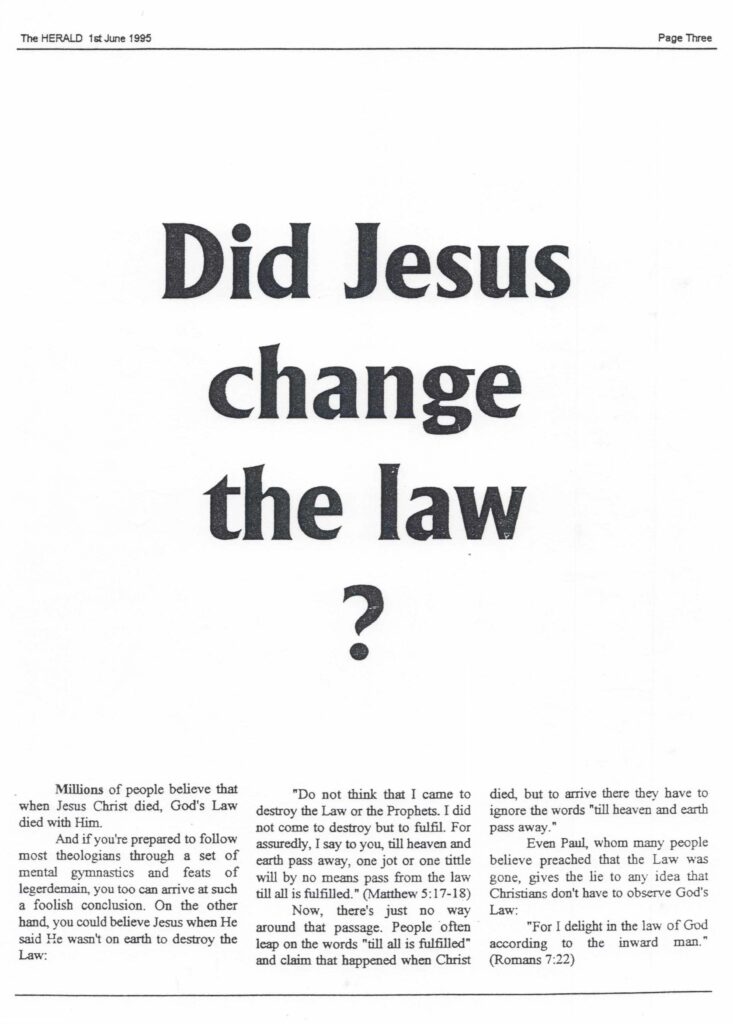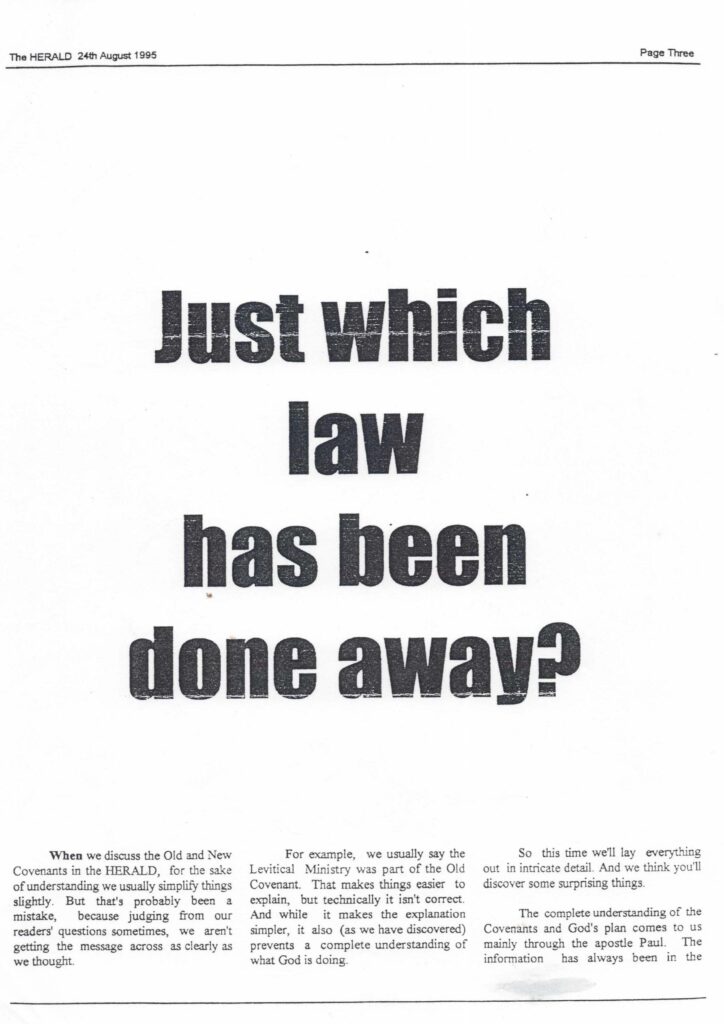BY GUEST CONTRIBUTOR
When was the Exodus of the Israelites from Egypt?
Most say it was on the fifteenth of Nisan, but was it?
(KJV Throughout)
The Bible does reveal when it occurred, as we shall see, but first we need to remember something that is easily overlooked. And that is, the time it took to complete the Exodus.
There were probably about three million people who left Egypt in the Exodus, together with about a million animals. We arrive at those figures from Exod 12:37-38 “Then the children of Israel journeyed from Rameses to Succoth, about six hundred thousand men on foot, besides children. A mixed multitude went up with them also, and flocks and herds—a great deal of livestock.”
If each man had a wife, and each family had two children, add to them the ‘many other people’, and we easily get three million. Plus, their large herds and flocks. Moving a crowd that size would be a logistical nightmare, and obviously would take some considerable time.
This is an important point, because if the Exodus took some considerable time, (and the Bible indicates that it took about sixteen or seventeen hours), then there are two possible times to refer to it. We could refer to its beginning, or when it was completed. If we keep that in mind, we can understand scriptures that seem to contradict each other.
Now we can begin to put information together to find when the Exodus occurred: -
The starting point is the start of the Passover. We know this occurred on the evening of the fourteenth of Nisan, that is, the evening immediately following the end of the thirteenth.
On this night the Israelites were to eat a meal of roast lamb or kid goat, the blood of which was to be painted on the doorposts of their houses. At midnight, when the death angel went through the land, the houses with blood on them would be spared from having their firstborn slain. Exod 12:13 “Now the blood shall be a sign for you on the houses where you are. And when I see the blood, I will pass over you; and the plague shall not be on you to destroy you when I strike the land of Egypt”
They were to stay in their houses till morning. Exod 12:22 “… And none of you shall go out of the door of his house until morning..”
They were to be ready to leave at a moment’s notice. Exod 12:11 “And thus you shall eat it: with a belt on your waist, your sandals on your feet, and your staff in your hand. So you shall eat it in haste. It is the Lord’s Passover.”
Now read the events of that night, which culminated in Pharaoh ordering them to get out of Egypt immediately: Exod 12:29-34 “ And it came to pass at midnight that the Lord struck all the firstborn in the land of Egypt, from the firstborn of Pharaoh who sat on his throne to the firstborn of the captive who was in the dungeon, and all the firstborn of livestock. So Pharaoh rose in the night, he, all his servants, and all the Egyptians; and there was a great cry in Egypt, for there was not a house where there was not one dead. Then he called for Moses and Aaron by night, and said, “Rise, go out from among my people, both you and the children of Israel. And go, serve the Lord as you have said. Also take your flocks and your herds, as you have said, and be gone; and bless me also.”
And the Egyptians urged the people, that they might send them out of the land in haste. For they said, “We shall all be dead.” So the people took their dough before it was leavened, having their kneading bowls bound up in their clothes on their shoulders.”
The Egyptians’ urgency to get the Israelites out is very evident.
So, the Israelites began to leave. And when was this? As we have seen, sometime after midnight. It had to be before dawn, because Deuteronomy 16:1 tell us that God brought them out of Egypt ‘by night’.
But some find difficulty here. There are two points that must be clarified. The first is that the Israelites were not supposed to go out of their houses till morning. The second is that some say the Israelites had to have time to ‘plunder’ the Egyptians before they could leave.
Can morning include a period of darkness?
Some say that the word ‘morning’ always means dawn or after. But that is not correct. There are scriptures that clearly show the same Hebrew word being used to include the dark part of the morning. It probably can include the period following midnight, much the same as the English word ‘morning’. Notice these scriptures:
- Exod 14:24 “Now it came to pass, in the morning watch, that the Lord looked down upon the army of the Egyptians through the pillar of fire and cloud, and He troubled the army of the Egyptians,”
We learn from Exodus 13:1 and several other scriptures, that the ‘pillar of fire’ was only there at night. So, the ‘morning watch’ had to include a period of darkness.
- 1 Kings 3:21 “And when I rose in the morning to nurse my son, there he was, dead. But when I had examined him in the morning, indeed, he was not my son whom I had borne.”
The first mention of morning in this verse obviously must have been a time of darkness, because the mother didn’t know that it wasn’t her baby. A different translation has it “the next morning, I got to nurse my son – and he was dead! But when I looked at him closely in the morning light, I saw that it wasn’t the son I had borne.” NIV
So, we see that ‘morning’ can indeed include a period of darkness. There is a reference in the New Testament also. Although the language is different, it shows the Jewish usage of ‘morning’ –
- Mark 1:35 “Now in the morning, having risen a long while before daylight, He went out and departed to a solitary place; and there He prayed.”
When did the Israelites plunder the Egyptians?
Some say that this occurred on the day following the Passover, so therefore the Israelites couldn’t have left just after midnight. But the Bible is very clear that the plundering had taken place well before this time. It took place just after the plague of darkness, and probably about two weeks before the Passover. Read Exodus chapters one to twelve to see the progression and timing of the events, and notice these points:
- The plundering took place before God told Moses that there would be one more plague.
- It took place before God told Moses that it was the first month of the year, and that they were to do something on the tenth day of the month. So, it must have taken place at least before the tenth of the month, which was several days before they were to leave.
- Some make the point that the Egyptians wouldn’t have given the Israelites anything at all in the days before the Passover because the Egyptians had not yet been ‘softened up’ by the final plague. But they ignore the fact that God said He gave the Israelites favour in the sight of the Egyptians. (Exod 11:3)
So, on the night of the Passover, just before they began to leave, we read this: Exod 12:35-36 “Now the children of Israel had done according to the word of Moses, and they had asked from the Egyptians articles of silver, articles of gold, and clothing. And the Lord had given the people favor in the sight of the Egyptians, so that they granted them what they requested. Thus they plundered the Egyptians.”
Notice that they had already plundered the Egyptians.

